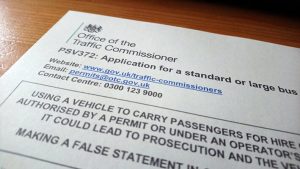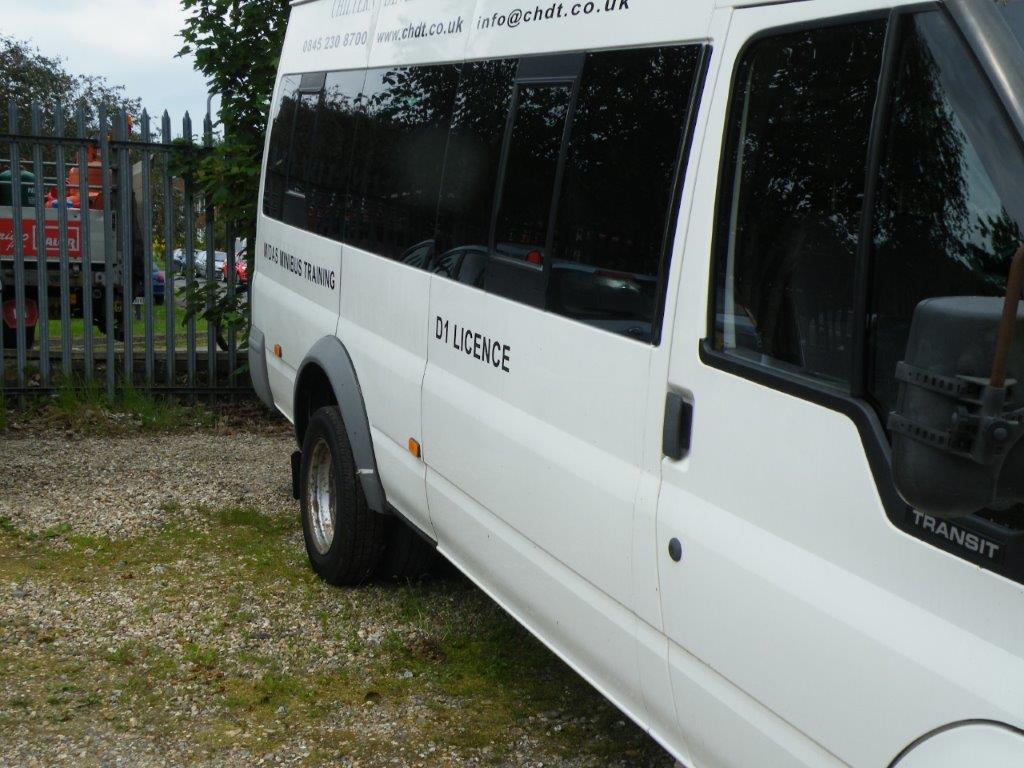Section 19 Permits
Introduction
The purpose of this guide is to offer advice to organisations who provide passenger transport without a view to profit; to explain the rules governing the permit system; and to assist those who wish to apply for permits issued under Section 19 or Section 22 of the Transport Act 1985. The guide is only intended for general help; it is not a legal document and does not provide a definitive interpretation of the legislation. Only the Courts can do that. The relevant legislation is to be found in sections 18 to 23A of the Transport Act 1985. Further requirements and conditions are prescribed in the Section 19 Permit Regulations 2009 (S.I. 2009/365) and the Community Bus Regulations 2009 (S.I. 2009/366). Copies of the Regulations can be obtained from the Office of Public Sector Information, www.opsi.gov.uk.

What are permits?
Ordinarily, any organisation operating in Great Britain (GB) that accepts any sort of payment for providing transport to passengers must hold either a public service vehicle (PSV) operator’s licence issued by the relevant traffic commissioner or a private hire vehicle licence issued by a local authority. In most cases, drivers of PSVs will also require a passenger carrying vehicle (PCV) entitlement on their driving licence. Under section 19 and section 22 of the Transport Act 1985 organisations who operate in GB without a view to profit can obtain a permit exempting them from the need to hold a PSV operator’s licence when providing transport for a charge. Under specified conditions, the drivers of certain vehicles are exempt from the need to have PCV entitlement on their driving licence.

TAKE NOTE: Permit holders have a responsibility to ensure that their services are operated within the law, with vehicles properly maintained and using drivers with the appropriate qualifications. If permit holders are in any doubt about their obligations in operating their vehicles safely and legally, and their ongoing entitlement to operate under the permit, then they should discuss with the body that issued the permit or VOSA
Types of permit
There are two types of permits issued under the Transport Act 1985.
- Those issued under section 19 (permits in relation to use of vehicles by educational and other bodies)
- Those issued under section 22 (community bus permits).
Definitions –
Without a view to profit (not for profit)
A vehicle being used under a permit must not be used with a view to profit nor incidentally to an activity which is itself carried on for profit.
A charity would normally be considered to be a not for profit making organisation.
Payment for providing transport
The legal term for this is ‘hire or reward‘. It is any payment, in cash or kind, which gives a person the right to be carried on the vehicle, regardless of whether or not that right is exercised. Hire or reward takes place if the journey is organised in a way that goes beyond the bounds of mere social kindness.
- The payment may be made by the passenger or on the passenger’s behalf. It may be a direct payment e.g. a fare or an indirect payment such as a membership subscription. Where indirect payments are made in respect of other services (rather than specifically for the transport) they are still likely to be viewed by the courts as hire or reward because anyone who had not made the payment would have no right to be carried.
TAKE NOTE:
The courts have taken a broad view of what constitutes “hire or reward”, and may consider indirect payments to be hire or reward. If you are in any doubt over whether your organisation operates vehicles for hire or reward you should seek further advice.
Requirements for Permit Holders
As a permit holder you have certain responsibilities to ensure the safe operation of your vehicles, that you are operating within the legal requirements, and that your permit continues to be valid. The key points you should ensure are that:
- your drivers are suitably trained and are correctly licensed;
- your drivers take appropriate breaks;
- your vehicles satisfy the appropriate construction and use requirements and are maintained in a safe and roadworthy condition;
- your vehicles are insured and that your insurer is aware that your vehicles are used to provide services for hire or reward under a permit;
- the vehicle is not operated with a view to profit, nor incidentally to an activity which is itself carried on with a view to profit;
- you only carry the class(es) of passengers allowed by the permit and in the case of Section 19 do not provide any transport services that could viewed to be carrying the general public;
- you inform VOSA or the designated body who issued your permit of any changes such as the change of name of your organisation, as this would mean that your permit needs to be replaced.
Driver licensing
The vehicle‘s driver must hold the appropriate category of entitlement on their driving licence.
Who can apply for a Section 19 permit?
Any organisation operating without a view to profit, concerned with:
- Education
- Religion
- Social welfare
- Recreation (standard permits only); or
- Other activities of benefit to the community.
Applying for a permit
Applications forms for standard permits are available from:
- www.gov.uk
- The VOSA Contact Centre on 0300 123 9000;
- The central licensing office in Leeds by emailing permits@vosa.gov.uk;
- A designated body
- Local authorities
How many permits may I apply for?
This will depend on how many vehicles you will be using at any one time. Each vehicle in use, that is carrying passengers for hire or reward, must be used under a permit and the corresponding disc must be displayed in the windscreen. For example, if you want to operate three vehicles at the same time, you must have three permits.
Training
The responsibility of driving a permit vehicle is one which should only be undertaken after careful consideration and proper training. Driving a minibus requires additional skills in order to be able to handle the vehicle safely; it is not simply like driving a large car.
Taken from VOSA‘s document PSV385 – “Passenger transport provided under Section 19 or Section 22 permits”. The full document can be found on www.ctauk.org (you may need to register). Full Information can be found here – https://www.gov.uk/government/publications/section-19-and-22-permits-not-for-profit-passenger-transport/section-19-and-22-permits-not-for-profit-passenger-transport
Contact Us
If you wish to find out more information please do not hesitate to contact us on 0800 1777 344 or email karena@chdt.co.uk
